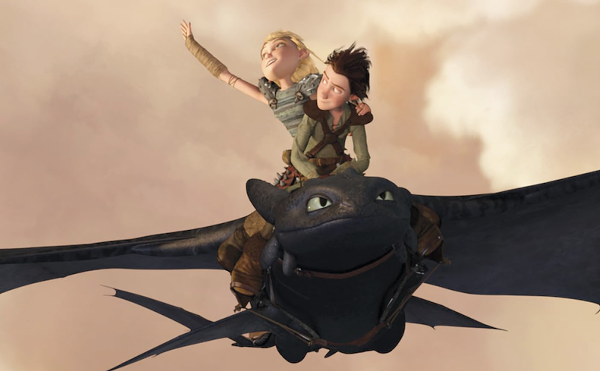The technology that will rule the future? The one that needs you the most.
After only a few minutes playing Nintendogs, you will appear - to any outside observer - to have completely lost your mind. You'll be shouting commands at your Nintendo DS, peering worriedly at your tiny computerized puppy and dutifully tapping the screen to pick up virtual dog poop. "Sit, Tube! Sit!" I shouted at my pixelated dachshund, as my wife looked on in mild disbelief. I'd been at this for two days, people.
| Everything but the fur: Nintendogs are adorable, responsive, and, most importantly, needy. |
Why does everyone love this game so much? Easy, say game pundits: The game's insanely cute. The puppies yip, perform tricks and chase after Frisbees and an assortment of squeaky toys. You'd have to be a war criminal to remain unmoved, right?
Me, I think the appeal is much subtler - and weirder. If we love Nintendogs, it's not merely because they're so adorable. It's that they're so needy.
The puppies are - like many virtual life forms, from Tamigotchis to The Sims - a rather helpless breed. You have to carefully monitor their hunger and thirst; when you're out for a walk, you have to shoo them away from street garbage so they won't eat it. Leave your puppy unattended for long enough and it'll become so filthy and distressed that it'll run away.
As it turns out, we're suckers for babysitting. Sherry Turkle - the digital-age pundit and author of Life on the Screen - has been researching the relationship between robots and people. She's discovered that the most popular robots are, unexpectedly, the ones that demand we take care of them. They trigger our nurturing impulses, the same ones we deploy toward infants, the elderly, or any other vulnerable creature.
The thing is, this precisely inverts the normal logic of artificial intelligence. Back in the '70s, everyone assumed we'd eventually have super-smart robots as servants - guarding our homes, managing our schedules, and bringing us a beer. That never happened. Nobody really wanted robots like that, because robots like that are kind of scary. Nobody wants a Terminator hanging around the kitchen.
In reality, when robots finally broke out into the mass market, it was the Furby and the Aibo. Not only did they serve zero useful purpose, they actually demanded we spend hours and hours nurturing them. If you didn't pay attention to your Aibo, it'd wilt. That, Turkle suggests, is precisely the reason these robots have such emotional purchase. Over in Japan, nursing homes are issuing Aibos to the abandoned elderly, because people love to feel needed - and as it turns out, that's the one thing that Aibo is genuinely "useful" for: making you feel needed.
You could say the same thing about the artificial intelligence in our games. When it comes to Halo or Half Life, sure, we want our enemies to be cunning and wily; it makes them feel more realistic and challenging. But the characters we emotionally bond with? We prefer 'em vaguely daft or ditzy. Warren Spector once noted that when gamers play Deux Ex, they become oddly attached to their four-legged "spider-bot" bombs, because these bots aren't very bright. They'll get befuddled and need to be coaxed up staircases. They're slightly helpless but eager to please, kind of like ... puppies!
Maybe sci-fi doomsayers have got it all wrong. Artificial intelligence won't be dominating us with its superhuman cognition and bloodless logic. It'll be peeing itself and demanding to be taken for a walk.
When you're playing with your Nintendog, every once in a while it will - like a puppy in a store window - lean forward and rest its paws on the screen, trying to lick your face. It's a rather sly, postmodern moment: For an instant, it seems, the dogs acknowledge that they're inside a game. Even they know they're not real.
Too bad I don't. If you'll excuse me, I have to go take Tube for a walk. •
Clive Thompson is a contributing writer at The New York Times Magazine. This story first appeared in Wired.


















